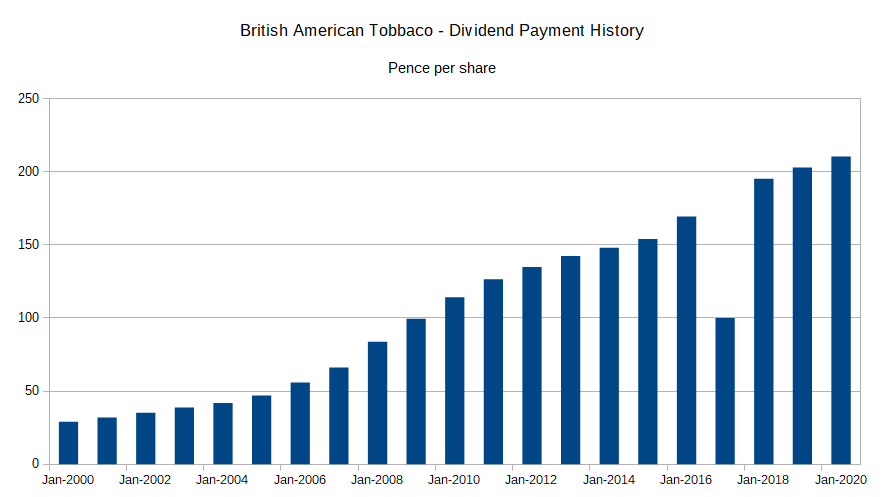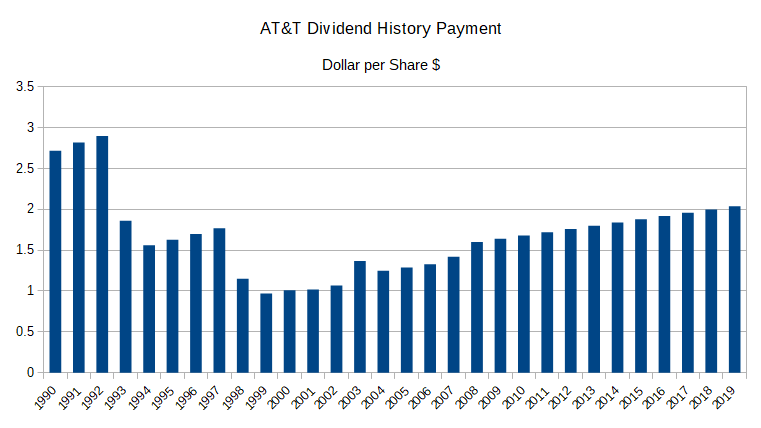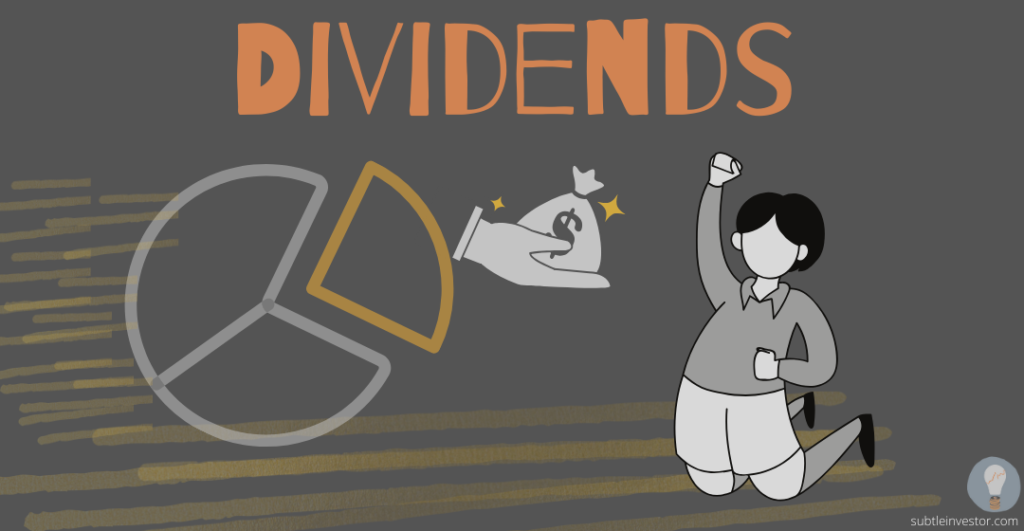Dividend Stocks | intro and questions answered
Have you also noticed a recent spike in people’s interest in Dividend Stocks? What is it that other knows or are looking for that you should also know. Keep on reading to learn about:
- What is a dividend
- When dividend is paid and how the calculation works
- Are dividends taxable? how to not pay any taxes on them
- Why dividend stock investing a good strategy
- What are some of the best dividend stocks
What is a dividend?
It is an amount of money that a company pays you for being their shareholder (i.e. buying a share). Each year when a company makes a profit, they either chooses to keep the money internally for the company or pay it out to shareholders. For example, last year in 2019 – roughly $1.5 trillion dividends were paid out to shareholders around the world.
Graph below shows historical Dividend Yield of FTSE All Share. This measures the average amount of income expected by investing in FTSE All Share. i.e. if the dividend yield is 5%, and you have $1000 invested; you can expect to receive an income of $50 per year (all else equal)
When is dividend paid?
A company typically choose to pay dividends either: quarterly, bi-annually or annually – all depending on their financial year. For example, BP plc pays its dividend quarterly and it’s year end is December. This means you can expect payment in March, June, September and December.
Did you know that Dividends are a key source of income for many wealthy individuals? Take the Walton Family, who owns 50% of Walmart – would’ve received huge amount of dividends as the company paid out $6.1b to its shareholders in 2019! Read my post on importance of growing wealth
How dividend payments work, what value is it paid on?
Companies usually set an amount for dividends per share. For example, during 2019, BP paid 10.5c dividend per share every quarter. So if you held 100 shares of BP the total amount of money you’d get as dividend would be: (10.5×100) x 4 = $42
Therefore, your dividend amount do not get affected by the share price. It is paid on number of shares you own
Are dividend payments taxable?
Yes & No. If your dividend stocks are held in ISA (applicable to UK) then you don’t pay any dividend tax. Yes, if you hold it outside ISA. Just like income, you have to pay tax on dividends and it depends on your individual tax bracket. In the year 2020, each individuals were given a tax-free allowance of £2000, above which you start to pay taxes. As of 2020, this is the current rate of tax to be paid on dividends:
Why dividend investing is a good strategy?
By investing in stable dividend paying companies, you can create a stable passive income stream. Unlike share prices, dividends paid out by companies do not change as much year on year (unless there’s a change in company policy or profitability, or adverse market movement). Typical dividend paying companies are usually cautious of cutting their dividends because it gets frowned upon by dividend fund managers and investors. Many companies build a positive outlook for their business by maintaining their dividend policy. Therefore, investing in dividend stocks are relatively less risky than companies that do not pay out dividends. Check out dividend paying history of British American Tobacco for example. I hold minimal number of shares in this company. If in doubt about starting to invest during the pandemic, you can read my other post on why now is a great time to start investing.

What are some of the best dividend stock?
It really depends on the individual need. Many people invest in very high dividend payers (which could also be risky, as there’s more chance of them cutting their dividends); while other prefers investing in companies that grow their dividends year on year. If an individual is looking for a company that pays stable growing dividends, then companies such as British American Tobacco (chart above), Unilever and Diageo are great as they have 20+ year history of dividend growth. In the US, AT&T is also a key dividend stock. Look at its historical dividend payout chart below. (Please note, this is not a personal investment advice.)

The summary
- Dividends are payments that a company chooses to share out of its income to their shareholders, i.e. you.
- They are a great source of passive income
- Income from dividends provide you with Tax advantages through tax-free limit and ISA
- Dividend payments are not directly impacted by company share price
- When buying a dividend stock, observe their dividend history as a key indicator of a stable company outlook

